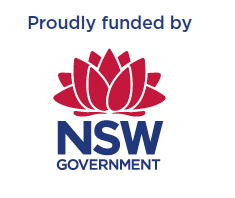Community Colleges Australia (CCA) held its National 2021 Adult and Community Education (ACE) Summit on 29 June 2021, a half-day online event.
Summit Purpose
To ensure the ACE sector can support Australia’s national economic recovery through education, training and community development.
The National 2021 ACE Summit aimed to broaden the knowledge of the national ACE sector, and showcase its community-based, innovative programs and pathways that can help governments succeed in meeting Australia’s economic, employment and social challenges in the light of the Coronavirus pandemic-induced recession.
Summit Value
Enhanced capacity of the ACE sector, along with stronger connections across states and regions, will deliver real results for the Australian economy. The ACE sector has unrealised potential and capacity to produce local and regional economic benefits and job pathways. The Summit will examine relevant national and state policy settings, programs and support, and the ACE sector’s strengths, geographic and organisational capabilities, structures and achievements.
We used this unique opportunity to develop proposals and future programs to engage Australia’s most vulnerable and disadvantaged in skills development.
We also heard from some of Australia’s leading “connectors” who are driving change and making a real difference.
Speakers
The Summit hosted an impressive array of speakers from all around Australia (click here for details).
Ministerial Keynote Speakers
- The Hon Stuart Robert MP, Minister for Employment, Workforce, Skills, Small and Family Business - LINK to speech
- The Hon Dr Geoff Lee MP, NSW Minister for Skills and Tertiary Education - LINK to speech
- The Hon Gayle Tierney MP, VIC Minister for Training and Skills & Minister for Higher Education - LINK to speech
Other Keynote Speakers
- Dr Marcia Keegan, Associate & Partner, SGS Economics and Planning, “Australia’s Economic Wellbeing: The Role of Community Education Providers” – LINK to presentation (PDF)
- David Crosbie, CEO, Community Council for Australia, “Surviving and thriving in challenging times – lessons from today” – LINK to presentation (PDF)
Commonwealth Government Speakers
- Jason Coutts, Assistant Secretary, Foundation Skills Branch, Australian Government Department of Education, Skills and Employment (DESE), “The importance of foundation skills in the Australian economy”
- Emma Gleeson, Assistant Secretary, Aged Care Workforce Branch, Australian Government Department of Health, “New Support for Aged Care Workforce Training”
Shadow Ministers’ Panel: topic - how to support Australian ACE providers in foundation skills and aged care training
- Tim Crakanthorp MP, NSW Shadow Minister for Skills and TAFE
- Brent Mickelberg MP, QLD Shadow Minister for Employment, Small Business and Training
- Dr Matthew Bach MP, VIC Shadow Minister for Higher Education, Training and Skills
Aged Care Workforce Panel Discussion
- Yasmin King, CEO, SkillsIQ
- Susan Scowcroft, CEO, Community Services & Health ITAB
- Nilay Gencturk, RTO and Learning Manager, Uniting
Foundation Skills Panel Discussion
- Tim Rawlings, Director and Head of Training Product Development, PwC’s Skills for Australia, PwC Australia
- Megan Lilly, Executive Director, AI Group Centre for Education and Training
- Vanessa Iles, Manager, the Reading Writing Hotline
- Jo Medlin, President, Australian Council for Adult Literacy (ACAL)
- Kylie Fergusen, CEO, Community Centres SA
Other Speakers
- Luke Hutchinson, Office of the Student Identifiers Registrar
Welcome to Country
- Uncle Allan Murray, Metropolitan Local Aboriginal Land Council
The Summit Chair was Frier Bentley, former National Manager, Government Relations, The Smith Family & former General Manager, Public Affairs, Communication & Sustainability, Australian Beverages.
Program
View the Summit program.
Read more background about the foundation skills panel and discussion topics, and about the aged care workforce panel and discussion topics.
Summit Resolutions
The Summit considered two sets of resolutions – one on foundation skills and one on aged care workforce training, which were discussed by advance working parties. Download and read the resolutions:
Background - Our Current Not-Quite-Post COVID-19 Moment
Australia’s adult and community education sector has a key role to play in getting vulnerable and isolated Australians back to work and engaged with the community, especially those who have been affected by the pandemic and the economic slowdown. The ACE sector – which has almost half a million students each year in accredited vocational education and training (VET) – 11.6% of the national total in 2019 – consistently “punches above its weight” in engaging Indigenous Australians, people with disabilities, rural and regional residents, people from lower socio-economic groups, mature (age 50+) Australians, people from non-English speaking backgrounds and women. (Read the CCA 2020 analysis of student data from New South Wales.)
Despite the vaccine roll-out, the potential for new small-scale outbreaks of COVID-19 from returning Australians and international transport workers point to a continuing volatile health environment and heightened community level of alertness. While the Australian economy looks likely to continue to recover during 2021, it will probably not reach full “pre-pandemic” economic recovery until 2023 or even 2024.
The pandemic has led to unprecedented investment by Australian governments to stabilise the economy while managing the health crisis. As JobKeeper finishes and JobSeeker benefits are reduced, community and workplace education and training support programs become even more important.
Communications
Help us promote this Summit; use the hashtag #ACESummit2021 in communications and social media.
Media Coverage
- "It takes a college: Claire Field on helping grass-roots community services," published by Campus Morning Mail, 30 June 2021.
Acknowledgement of Country: Although the Summit was held as a virtual event, the “headquarters” of the ACE Summit was on the lands of the Gadigal People of the Eora Nation. CCA acknowledges their Elders, past, present and emerging.
PLATINUM SPONSOR

GOLD SPONSORS


BRONZE SPONSOR





